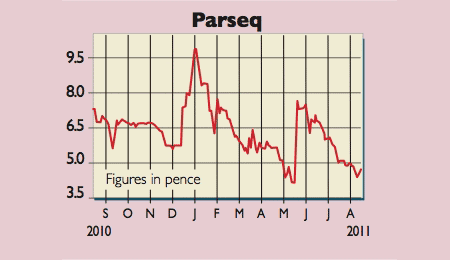
Imagine you’re in a local store buying groceries. At the checkout, rather than handing over your credit card or a crunched-up fiver, you tap your mobile phone against a wireless reader. Not only are the funds securely and accurately charged to your account, but money-off coupons are also deducted from the bill and your loyalty card points credited. All with one simple tap.
This is Parseq’s bread-and-butter business. In May the firm won a multi-million pound three-year contract with O2 to supply its 20 million British customers with mobile banking. The service will be launched later this year using Parseq’s mobinetic software and enables users to access their banks accounts wirelessly. Parseq also conducts contactless payments, m-commerce and money exchanges between friends.
This game-changing deal endorses the quality of the application, since Parseq was chosen from a host of top-flight potential bidders. And it also comes hot on the heels of similar agreements with Generali and Orange Barclaycard.
Parseq also offers complementary back-office outsourcing services to companies such as Lloyds/HBOS and the Home Retail Group. So, when dove-tailed with its online (NetFinance) and mobile products, the company can now provide an end-to-end e-payments service. That’s an important differentiator for customers such as Barclaycard, which does not have the complex infrastructure required to support mobile banking.
Parseq (AIM:PSQ)
But why the depressing stock chart? Well, although the mobile arm has exceeded expectations, the outsourcing side has recently experienced a brake on orders as bid cycles have lengthened. To its credit, the board is chasing opportunities hard and expects some deals to be signed before the year is over. As a result, house broker Canaccord reduced its estimated 2011 turnover and underlying EBITA to £26.7m and £3.2m respectively, rising to £29.4m and £4.1m in 2012. On this basis I would rate the group on a 12 times EBITA multiple. Adjusting for net debt of £4.2m, this delivers an intrinsic worth of 7.5p per share.
The main risk for investors is future competition from the likes of heavyweight rivals, including Google’s eWallet and Apple. Furthermore, there is a chance this small-cap may overstretch itself, with resources being sucked up to support its rapid expansion plans. That said, the upside is substantial, so today’s price looks a good entry point for the more adventurous. Canaccord has a target price of 7.9p.